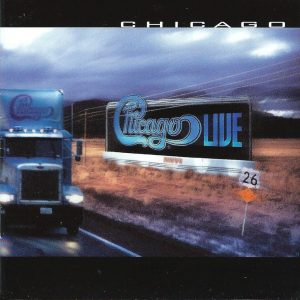Published on May 2, 2005
I have spent years in the pursuit of great live albums.
Unfortunately, they are few and far between. Now, admittedly,
Chicago 26 already has a few things against it. First, they
are one of my favorite groups, so expectations are higher.
Secondly, having seen them live performing a wide variety of
material makes the omissions on this album seem even more glaring.
While my status as a Chicago fan certainly affects how I view this
album, that doesn’t change the fact that this is a very poor effort
from one of the longest-touring acts in rock.
Up at the top of this review, where the name of the album lies,
pick out the number please. Got it? That would be 26, indicating
this is the 26th Chicago album. At roughly ten songs an album (a
conservative estimate), that would imply Chicago has recorded 260
songs. We get 13 here, and the final three are new recordings. That
leaves ten songs (for Chicago fans, I always count “The Ballet” as
one work). Classics such as “Saturday In The Park,” “Does Anybody
Really Know What Time It Is,” and “If You Leave Me Now” – not to
mention album tracks like “Dialogue,” “I’m A Man,” or “South
California Purples” — are nowhere to be found. Ten tracks that run
roughly an hour are nowhere near enough for a band of Chicago’s
caliber.
The actual performances fall between energetic and sterile.
Throughout this disc, it sounds as if audience applause and
cheering was added in as an afterthought. This is a concert; I want
to hear clapping, singing along, any indication the crowd is alive
and feeling the music. After all, live albums are supposed to
capture that experience, or at least they used to. It’s nice to
have a clean-sounding live album, but
Chicago 26 overdoes it.
Fortunately, Chicago has been touring too long for the members
to turn in bad performances. As always, the horn section is the
heart and soul of the band, bringing life to the tracks. “Feelin’
Stronger Everyday” moves along faster than original, and it
actually sounds like the boys care. “Hard To Say I’m Sorry”
improves in terms of sound tremendously with the inclusion of the
horn section, something that was lacking on
Chicago 16. Robert Lamm and Bill Champlin perform with the
panache and style that comes with the year spent in the
industry.
However, it is the vocals of Jason Scheff that ruin a good deal
of
Chicago 26 for me. Every song he sings on the album was
originally sung by Peter Cetera. Cetera left an indelible mark on
these tracks; his voice is one of the unique ones in rock. Scheff’s
vocals come off as soft and weak on songs like, “(I’ve Been)
Searchin’ So Long.” They lack punch, and he has a tendency to play
around with the melody a bit. Casual fans probably won’t notice the
difference, but longtime Chicago fans can tell.
The three “new” tracks are decent efforts from a band that in
recent years has often been unwilling to take risks. (Note:
Chicago 30 is finished recording, and preliminary buzz is
good, so they still might have a chance.) Count me as a sappy
person, but I enjoy “Back To You.” It’s a strong, Chicago-style
ballad. This is the type of song Scheff can pull off in his sleep,
so it works. “Higher and Higher” is a curiosity. Michael McDonald,
who actually was a member of Chicago’s label for a while, turns in
tremendous, soulful performance — the question is, why is he there
at all? Chicago has three lead vocalists, one of whom (Champlin)
has proven to be excellent at handling this type of material. The
harmonies on “If I Should Lose You” are excellent, again proving
Chicago was always underrated in this category.
Let’s see, ten songs, sterile sound, and a lousy performance
from one key singer. On the other hand, we have tight performances
from the band and three decent new recordings. Which side wins out
here?
